Google is killing Google Job Ads before it went live?
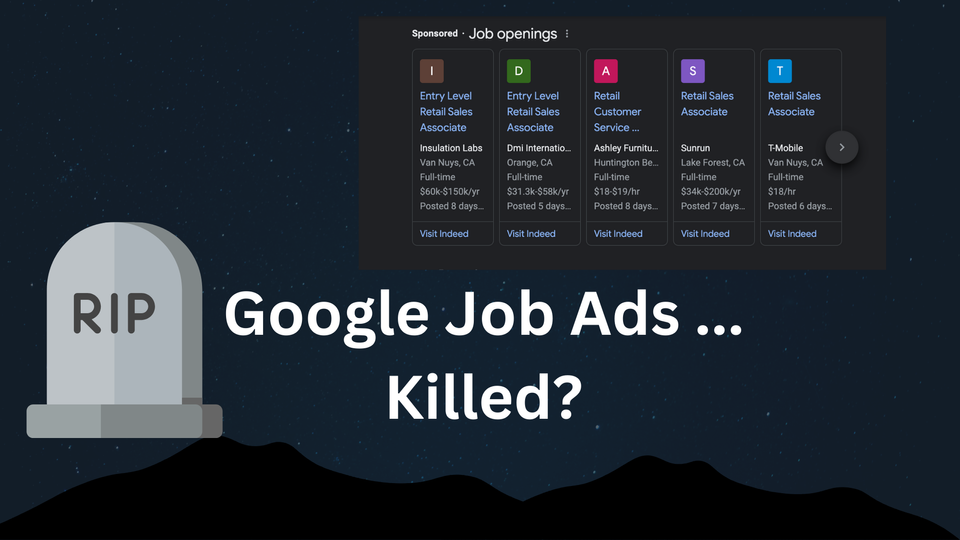
Google is killing Google Job Ads even before it went live?
This is how it started:
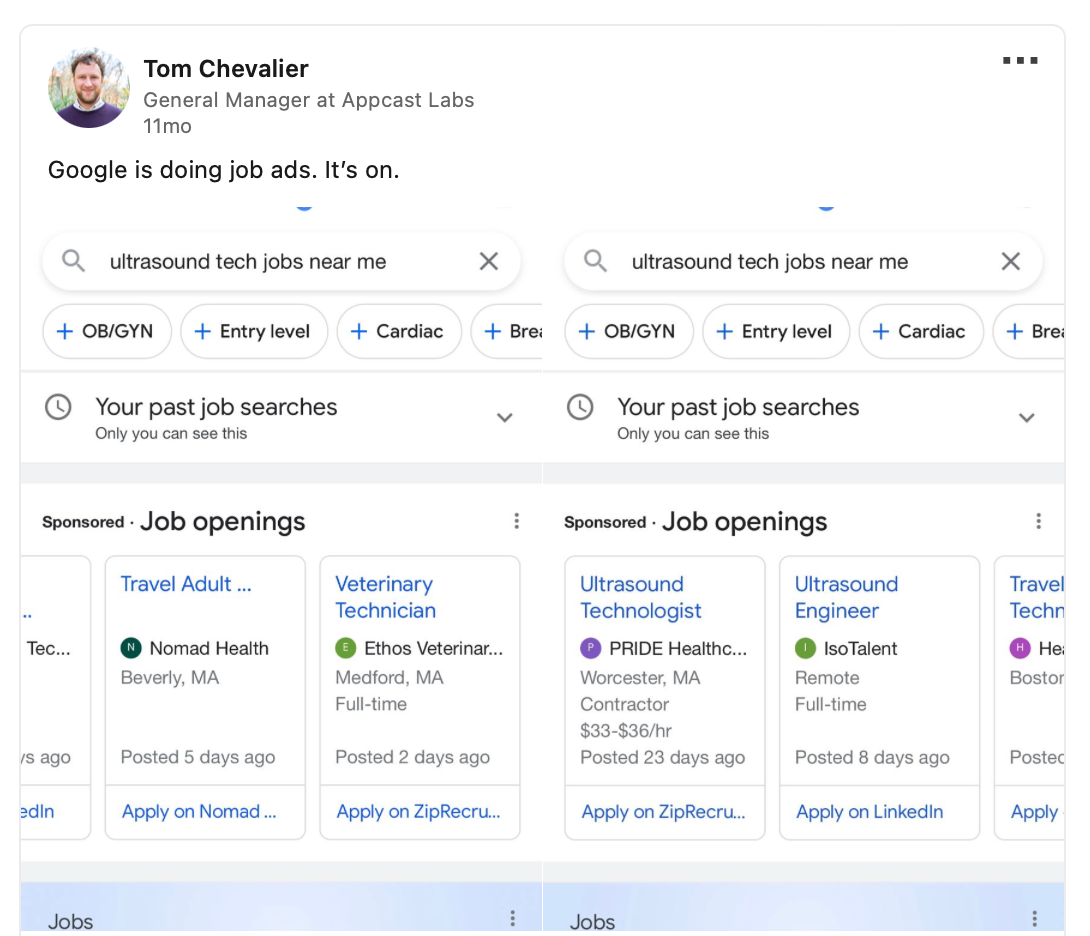
This is how it ended.
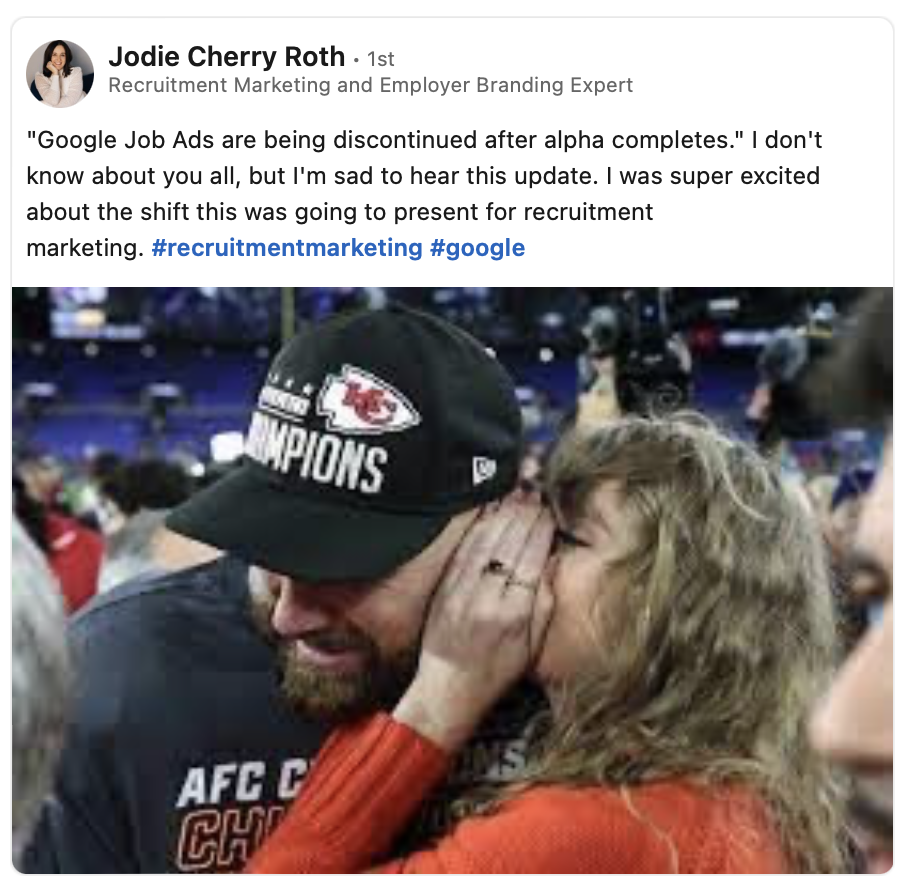
It started on Linkedin, and it ended on Linkedin. There are no official release documents besides a leaked deck; Google Job Ads have been killed.
This is not the first time killing a product in recruiting. Do you remember Hire by Google? It was dead just a few years back in 2020.
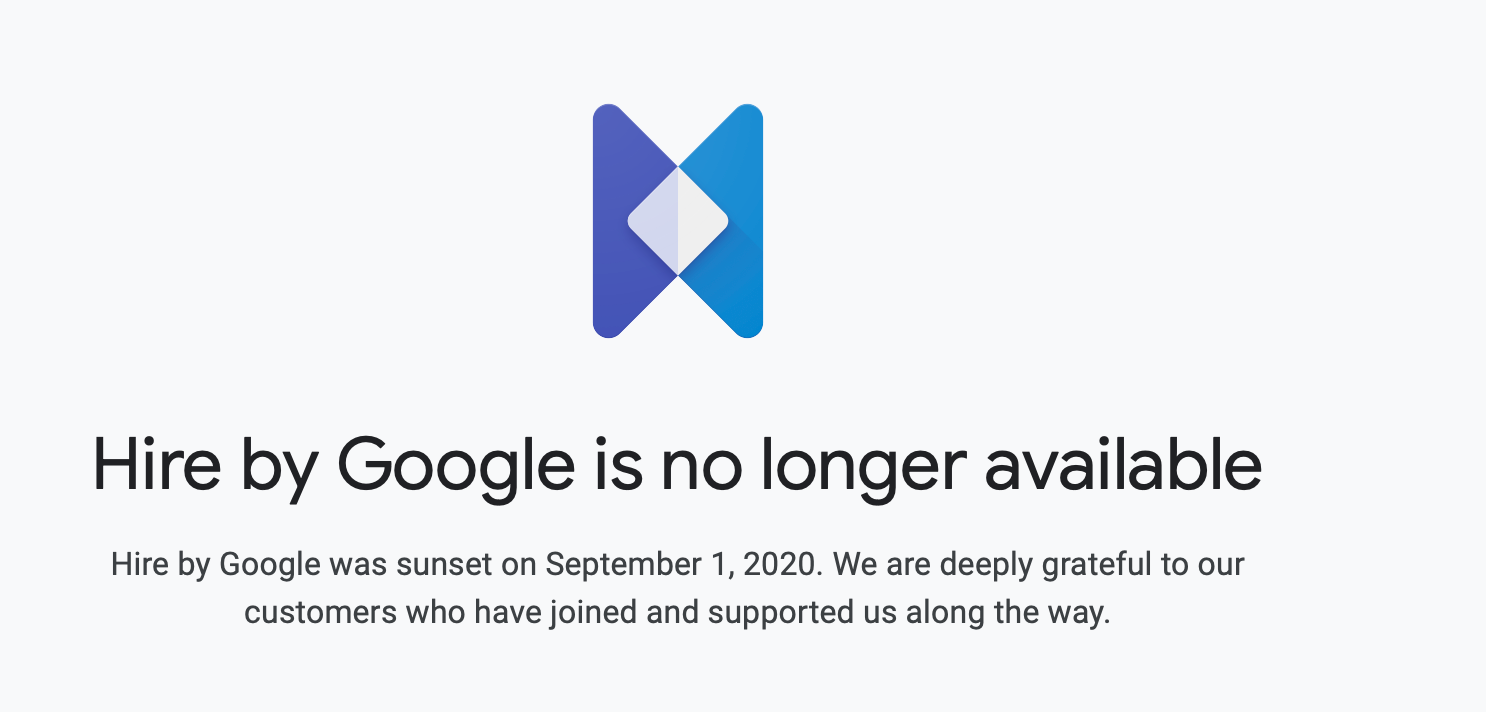
The job matching product has not been killed yet, but there is no more marketing, and probably 2 to 3 people worldwide are still using it.
I want to share a few thoughts on what is happening.
Also, I highly recommend reading the Linkedin discussion after the announcement went out on Friday:

What problems did Google Job Ads solve in recruitment marketing?
First, it saddens me that this product will not see the light of day (yet). Having a genuine, programmatic job advertising product is essential for our industry. Let’s not kid ourselves; our online recruiting infrastructure today has nothing to do with real programmatic advertising.
Besides a few aggregators and social media, our industry runs on XML feeds being updated once every 12-24 hours. Overspending and underspending is a constant problem; bidding offers almost no edges, and don’t get me started on the issue of trying to sponsor just a few jobs on large aggregators – it just does not work.
So yeah, Google Job Ads would have solved all of these issues.
What is the "official" reason for the cancellation of Google Job Ads?
The industry chatter is that the product is getting killed because it was too expensive and did not get enough traction. As we saw during the alpha, the UX of Google Job Ads was pretty bad. It is hard to believe that anyone wanted to click these, so I am willing to accept this partially.
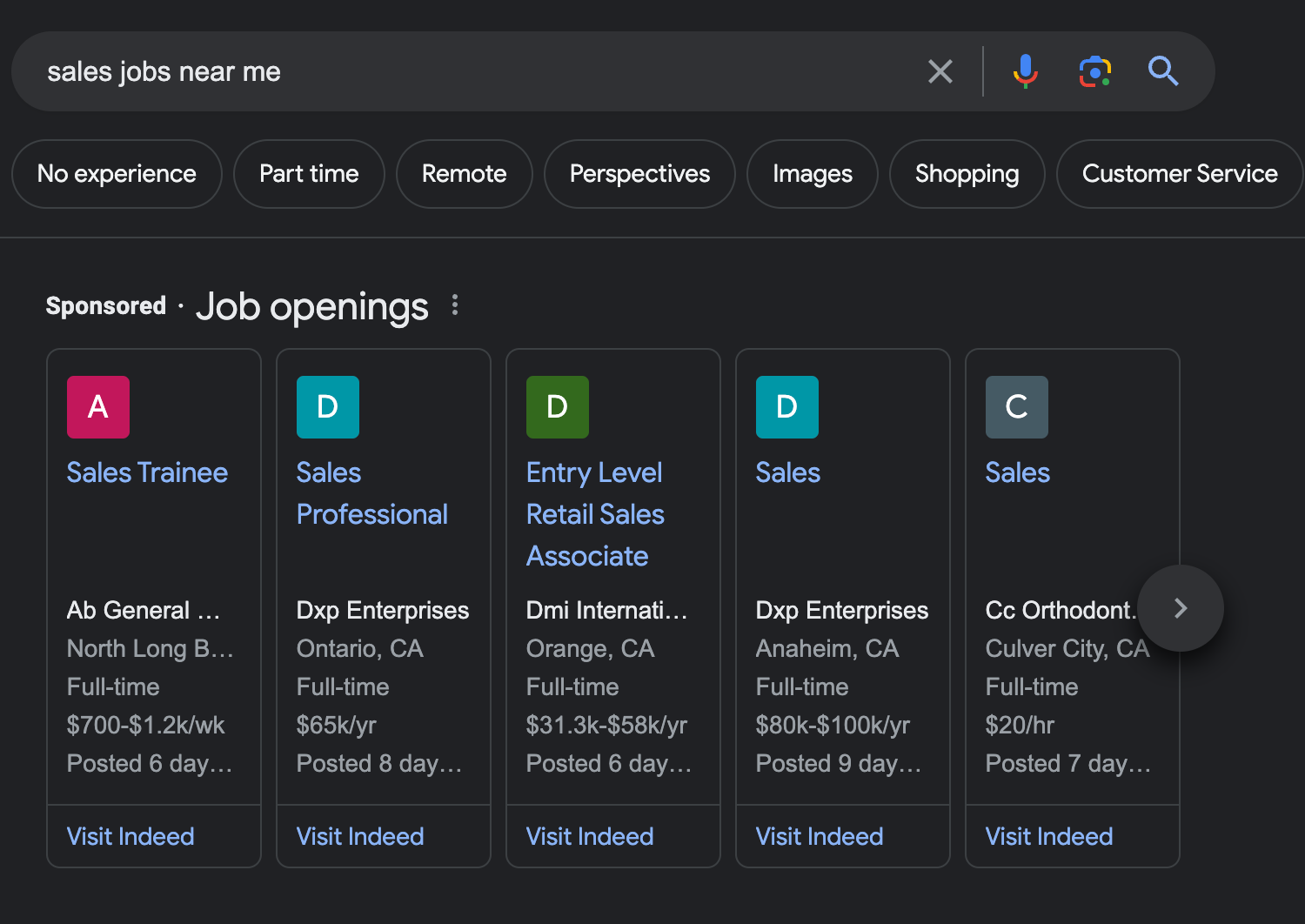
I don’t buy the being expensive part, though. Google can offer whatever prices they want here, especially in the penetration phase.
What else could it be? Is Google firing the core team by mistake? Joke aside, I have a few hypotheses.
So, here are my thoughts on why Google is killing Google Job Ads
First, a small Danish company operating a job board called Jobindex.dk filed a confusing lawsuit against Google after losing 16% of their revenue. They allege that Google is illegally scraping their job descriptions, potentially setting a new precedent for the industry.
Check out my Deep Dive on this topic:

This is not the first time this has happened.
After Google was fined $2.4B in 2017 for market dominance abuse related to Google Shopping, 23 Job Boards (including Stepstone, Jobware and Jobindex back then) wrote a letter to the EU Commission hoping to pull the same against Google Jobs (Read Original Article) It got killed, but picture yourself being part of the Google legal team. Would you release a product for the recruiting industry after a company providing services in the recruiting industry started a lawsuit against you? Most likely not, especially if the continent you are getting sued on is well known for slapping you with record fines in the area of two and a half billion USD.
Second, Google is very well known for prioritizing user experience. We now understand that it was mostly the programmatic job advertisers onboarded during the alpha, along with Indeed, ZipRecruiter, and Linkedin. Jobs from programmatic job advertisers are not always known for having great UX – more often than not, they will hoop job seekers through multiple sites before they land on an actual application page (if at all).
Indeed's UX is not strictly better. Click on a job ad, get redirected to Indeed, sign up, get redirected to an ATS, and sign up again to apply:
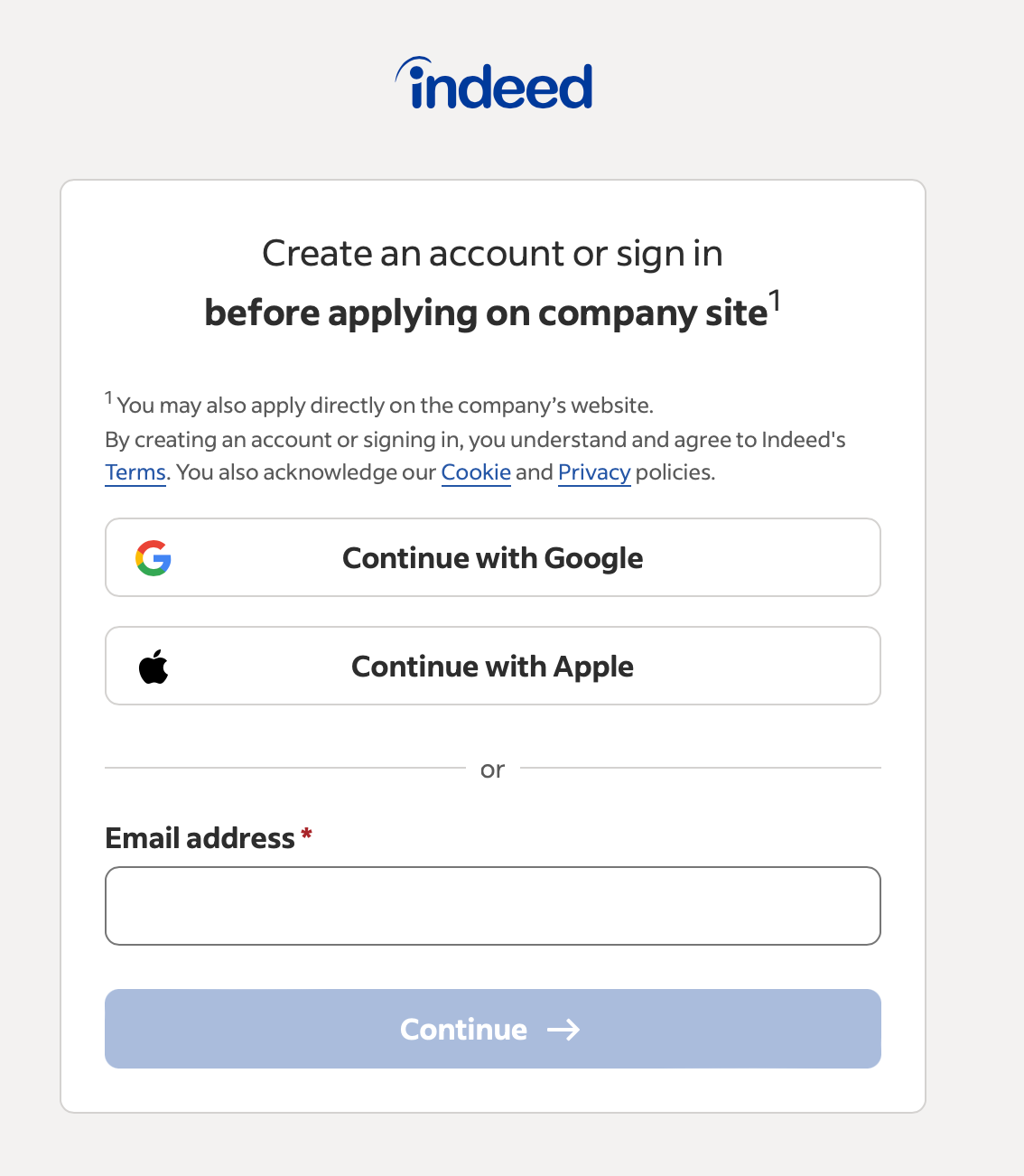
I am pretty sure that if a Google executive saw that, their hair would turn white in a second. This is against everything that Google stands for.
Now let's go a few steps further.
I have only covered redirect loops. There are tons of other crappy practices from third-tier aggregators, like advertising expired jobs that lead to search pages. Then there are also fake jobs, created to grab personal data for scams. The list is very long.
Bottom line, Google does not want to deal with this. At least not for $2-3bn.
With the advancement
My last thought is a bit of an assumption, but I don’t think we are done with new sponsored products for job boards and aggregators.
Google might still offer a different form of sponsoring content for job boards
Recently, we had a new Google Jobs UX being released in Europe. Part of the release is a Job Sites feature on the search page:
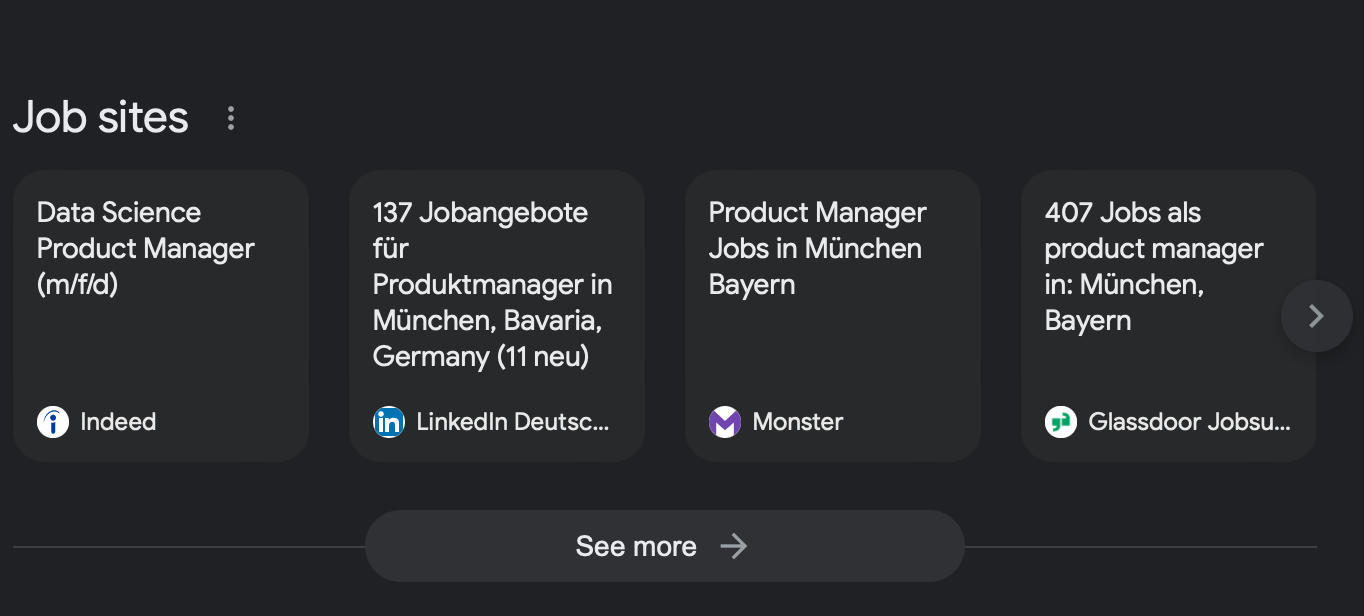
So, here is where it gets interesting.
The new Job Sites
feature behaves a bit like the ads, doing a direct clickout to the link. It also
serves as a slideshow/carousel, behaving exactly like the
job ads during the text. It might be an excellent opportunity to offer some new
types of campaigns on Google Ads.
Final thoughts on Google killing Job Ads in the alpha
I am sad about this product being discontinued. It would have brought some well-needed innovation to our space, especially in the DACH area, where duration-based postings are still the main way of advertising jobs.
Having seen the original email that Google employees sent with the cancellation news, I think they are only killing the format, but not the sole idea of having a dedicated ad product for jobs.
Only time will show.
